Home » IPU President, Dermot Twomey speaks at the AXIS Consulting ‘Patient Access Conference’
In this article, the IPU’s Head of Professional Services Clare Fitzell provides an overview of the speakers and content of the event, which was held on 23 February 2023 at the Royal College of Physicians.
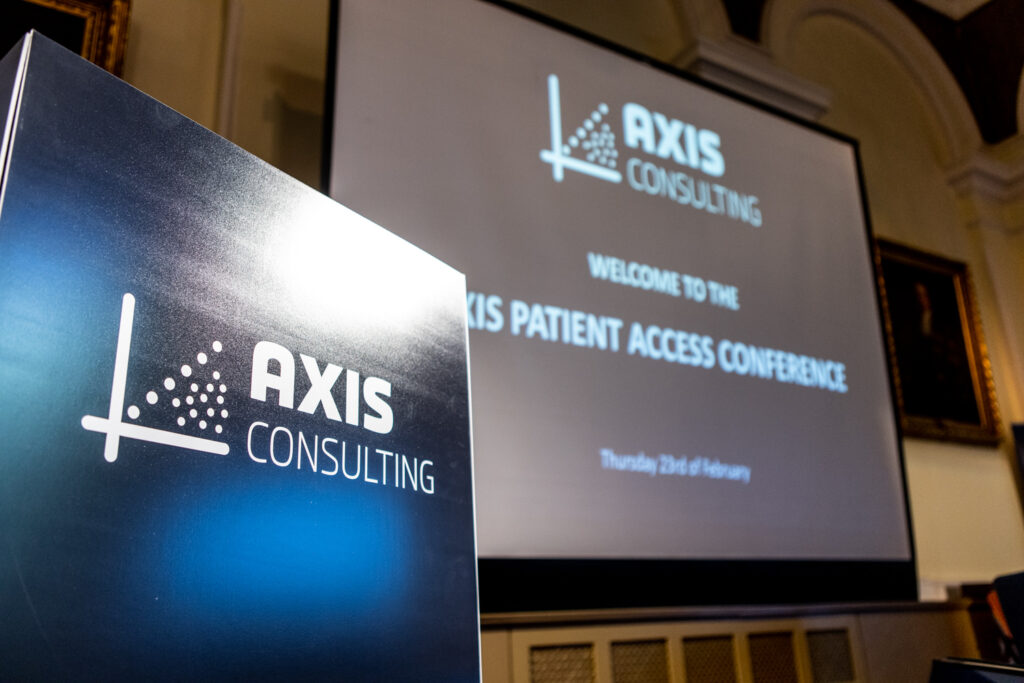
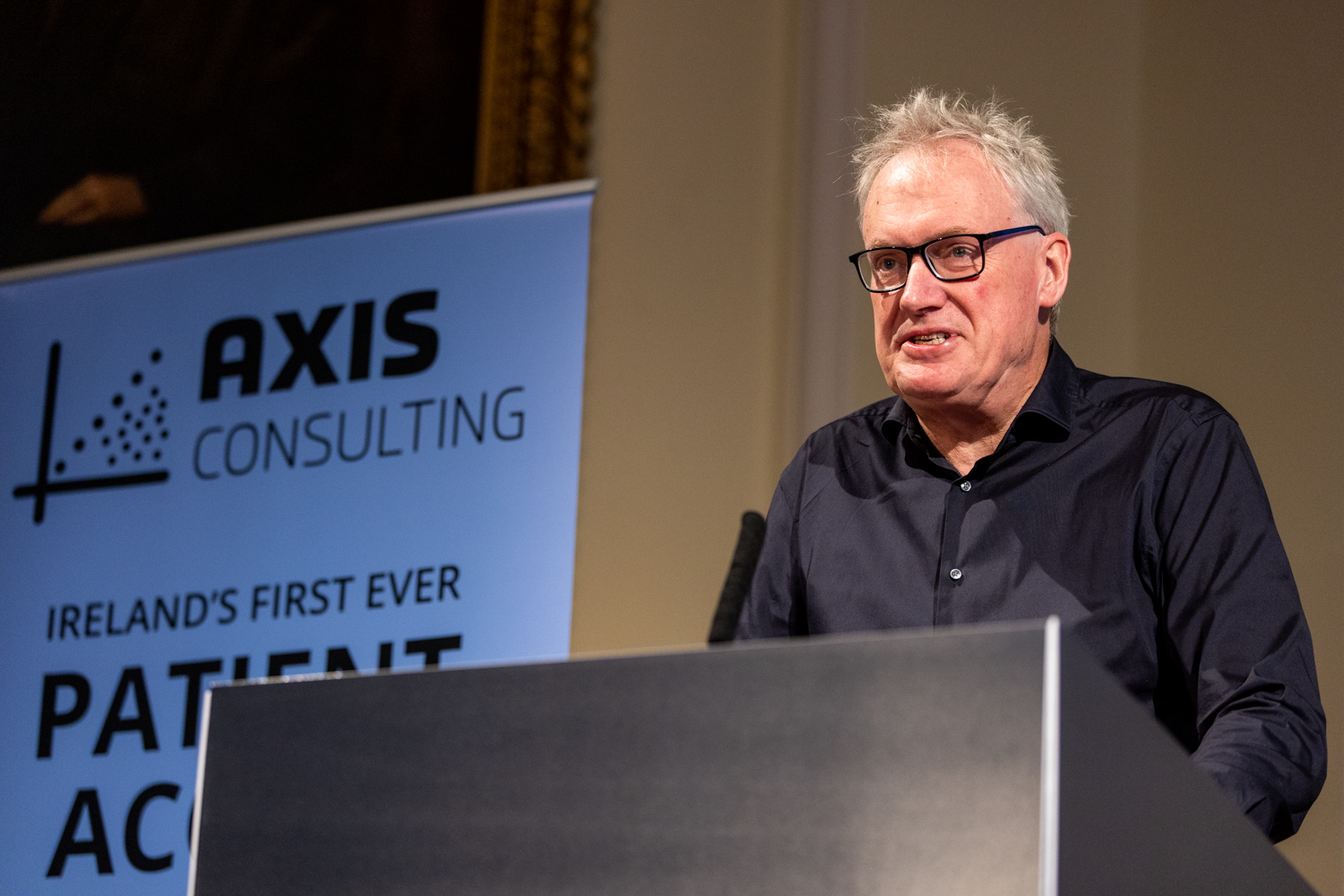
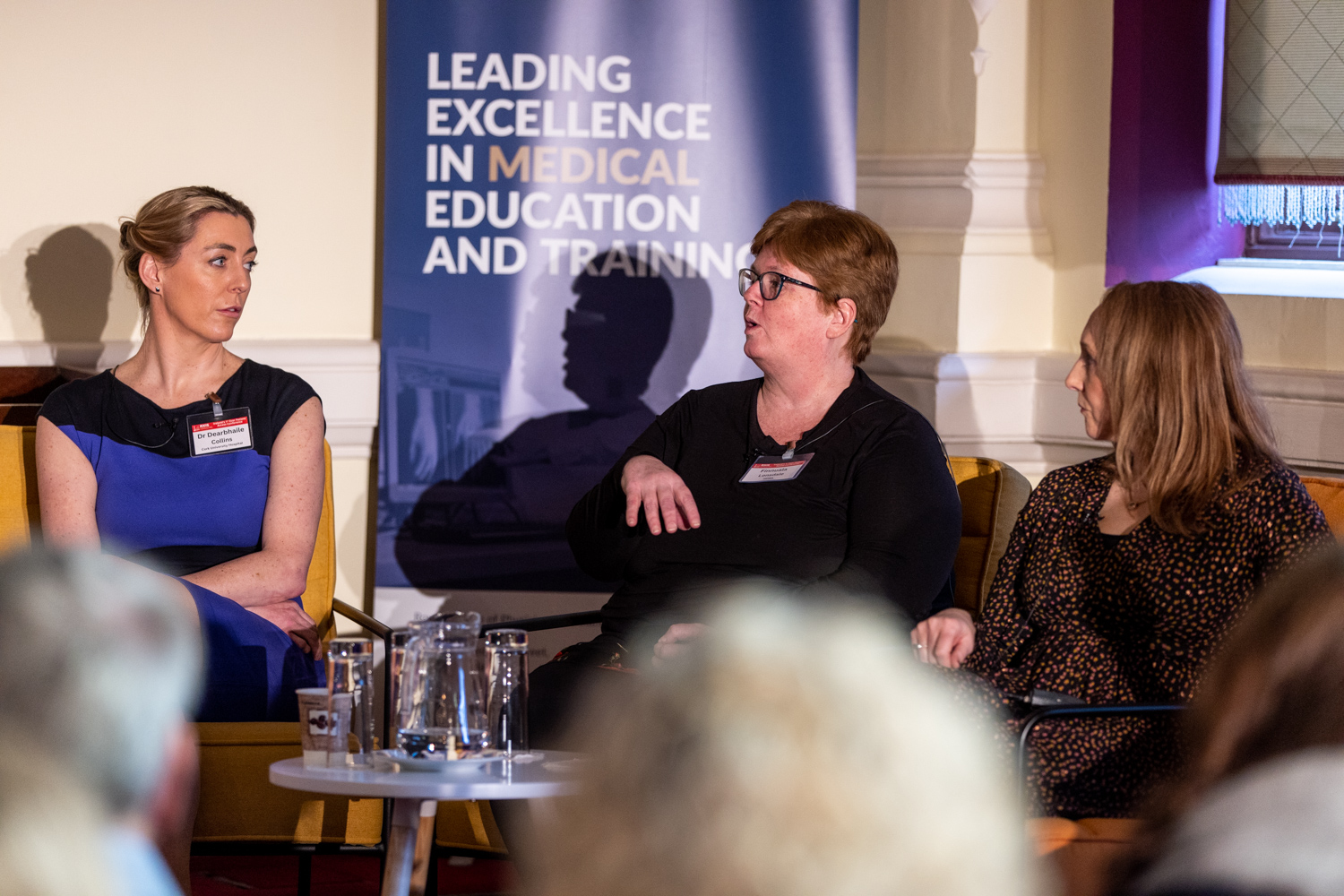
Panel 1 – Early Exposure to Medicines: Dr Dearbhaile Collins, Finnuala Lonsdale and Eibhlin Mulroe.
In opening the conference, AXIS Consulting Founder & CEO Brenda Dooley outlined that when a medicine is granted EU authorisation, it takes on average two years and six months for medicines undergoing a Health Technology Assessment (HTA) to achieve reimbursement or funding approval in Ireland. Ms Dooley said the purpose of the event was to bring all stakeholders involved in this process together to seek ways for better collaboration, so that Irish patients can gain access to medicines at a timeline more aligned with their European counterparts.
Professor Luke O’Neill
Professor Luke O’Neill of the School of Biochemistry and Immunology at Trinity College Dublin spoke about his experiences in the early drug discovery process, when he gave the first talk of the day. He highlighted this through his own research on an NLRP3 modulator which has the potential to be used across a range of inflammatory diseases and auto-immune disorders. He outlined the discovery process for this molecule and the establishment of the company Inflazome, which Roche later acquired. He highlighted that drug discovery has a high failure rate of 96% and that research in conjunction with academics was key for new novel drug discovery.
Panel Discussion – Early Exposure to Medicines
An interesting panel discussion entitled ‘Early Exposure to Medicines’, facilitated by medical journalist and the conference MC, Priscilla Lynch, discussed the status of clinical trials in Ireland. The panel included Dr Dearbhaile Collins, Consultant Medical Oncologist from Cork University Hospital, who discussed her experiences of conducting clinical trials in Ireland versus her international experience. Dr Collins expressed her opinion regarding the opaqueness of a reliable information source to understand the medicines available to Irish patients under compassionate or expanded access programmes, with this knowledge often only shared between her colleagues and herself through WhatsApp groups. Other panel members included Ms Eibhlin Mulroe, Chief Executive Officer at Cancer Trials Ireland, and Ms Finnuala Lonsdale, Director, Human Products Authorisation and Registration at the HPRA. A wide variety of topics were covered throughout this panel discussion. It is worth noting that each participant cited differing data protection and GDPR requirements across hospital sites in Ireland as a barrier to running more clinical trials. A clear request for harmonisation of these requirements at a national level was requested. A general view was expressed that this will allow for a more streamlined process and should improve the timeline for ethics committee approval across sites. The panel also discussed the EU clinical trials regulation, and the role of the Clinical Trials Information System (CTIS), and how both should ensure that the EU is seen as an attractive and favourable environment to conduct clinical research, whilst assuring public transparency and safety for clinical trial participants. Panel participants cited Denmark as an example country, who were getting it right. As a result, their citizens were gaining access to the newest treatment forms at an earlier stage.
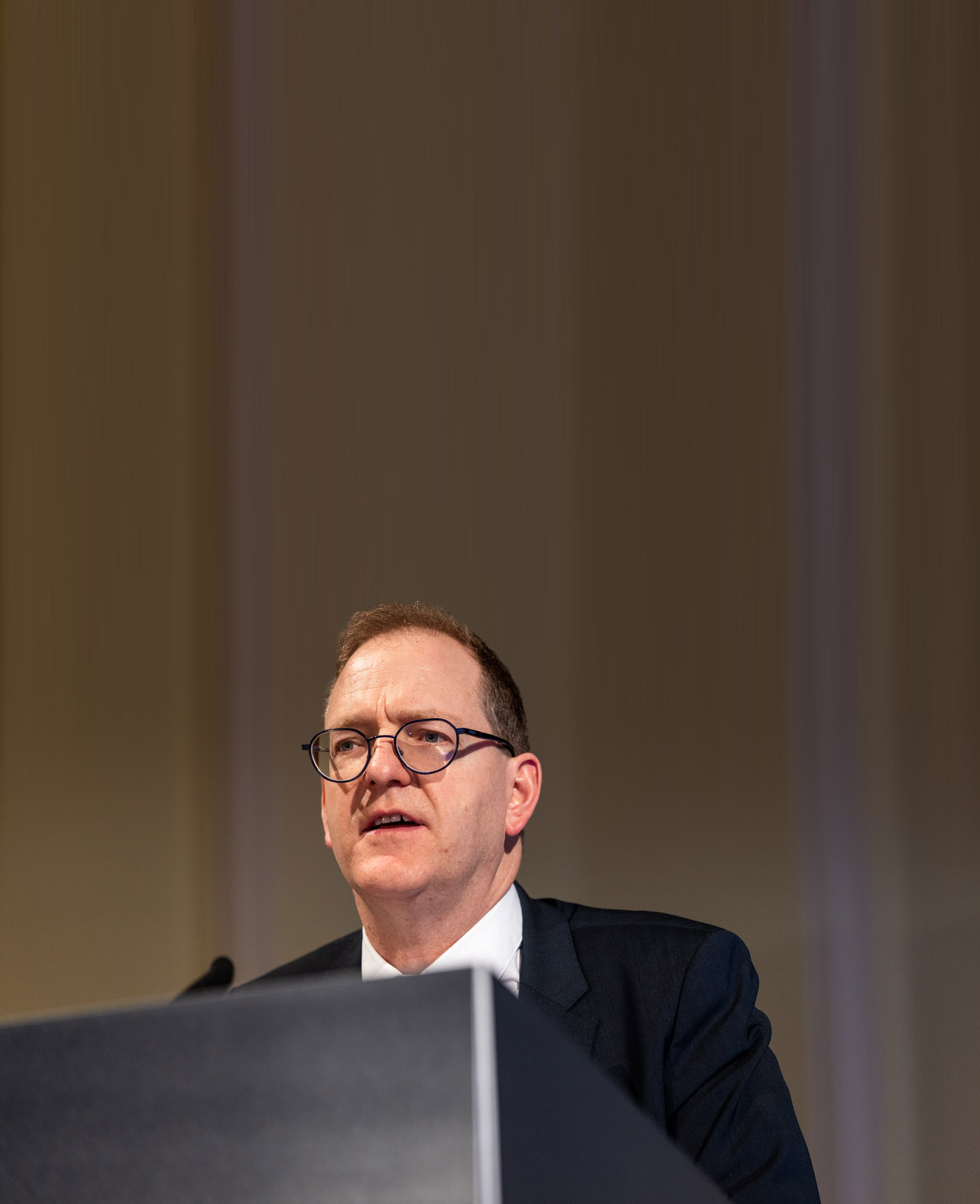
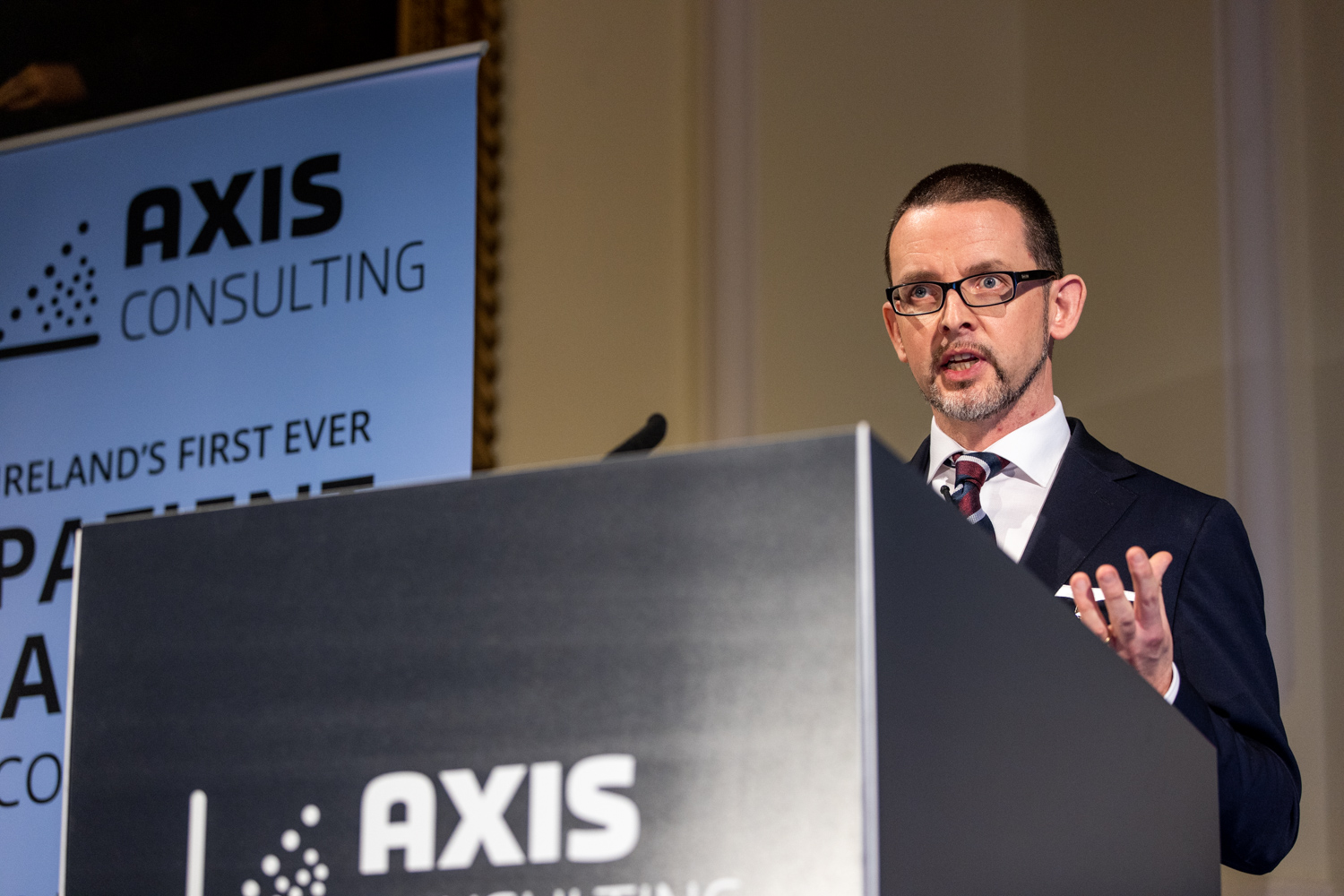
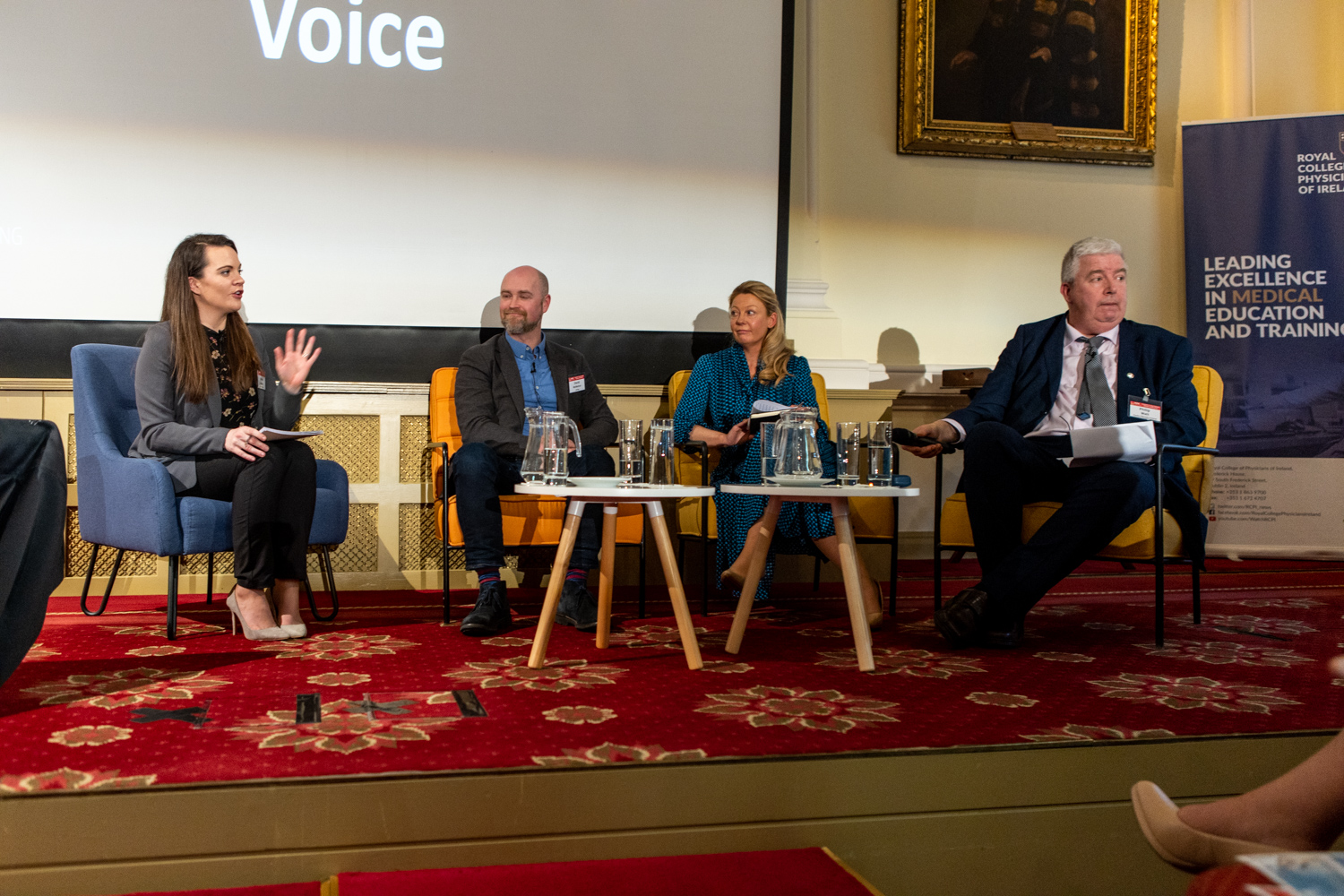
Panel 2 – The Patient’s Voice: Marian Hernon, David McMahon, Rachel Morrogh and Philip Watt.
National Centre for Pharmacoeconomics
The next speaker was Dr Lesley Tilson, Deputy Head of the National Centre for Pharmacoeconomics (NCPE), who gave the audience an insight into the role of the NCPE and the work of over twenty dedicated individuals within this organisation. It was clear from Dr Tilson’s presentation of the specialism in the work that they have undertaken since the NCPE was founded in 1998, the role of Health Technology Assessments (HTAs) and the importance of the Health (Pricing and Supply of Medical Goods) Act 2013. Dr Tilson highlighted that approximately 50% of new drugs to be reimbursed in Ireland require a full HTA. Dr Tilson also highlighted a patient education programme that the NCPE had developed to provide detailed knowledge of the principles of HTA, which provides insights into the process, thereby encouraging greater collaboration with patient groups during the HTA process. The importance of Horizon scanning for the NCPE was highlighted, and Dr Tilson, indicated that a large proportion of medicines in the horizon scanning process were for the treatment of cancer (60%).
National Cancer Strategy 2017-2026
AnneMarie De Frein, Chief Pharmacist at the National Cancer Control Programme, spoke on the National Cancer Strategy 2017-2026 and the change in terminology from chemotherapy to systemic anti-cancer therapy (SACT). AnneMarie highlighted that not only was funding needed for new medicines, but often new tests were also required, and the testing infrastructure was also important when considering a new drug application. She highlighted the establishment in 2011 of the NCCP Technology Review Committee and how this group provides information to the HSE Drugs Group. AnneMarie outlined the hospitals currently providing SACT , from the designated cancer centres to those with oncology and haematology consultants, to those with part-time consultants available. Over the last ten years, 143 medicines have been approved for use in the NCCP, and over 460 Irish-specific chemotherapy regimens have been implemented nationally. AnneMarie finished by explaining the role of the National Cancer Information System (NCIS) allowing for longitudinal patient records and data sharing, which is currently live in nine sites in Ireland.
HSE Corporate Pharmaceutical Unit
The final speaker in this session was Ms Ellen McGrath, Chief Pharmacist and Head of the Corporate Pharmaceutical Unit (CPU), HSE, who outlined the role of the HSE Drug Group and also the Rare Diseases Technology Review Committee within the HSE. Ms McGrath highlighted that of the 280 applications for pricing and review, the CPU had concluded over 174 at the time of the presentation. She also highlighted that certain figures quoted on access to drugs in Ireland by EFPIA included all new EMA-licensed medications, some of which the drug companies had chosen not to market in Ireland, so the comparison of ‘time to market’ as a global figure, was not representative of Ireland. She highlighted the general principle of quality-adjusted life year (QLAY) of €45,000 as the benchmark for reimbursement.
”It is clear that the drug budget will become more and more constrained over time, with each molecule presenting for reimbursement being a significant decision for the HSE, which has a finite budget and resources.Publicly-funded hospitals currently providing SACT

“There should be a key role for community pharmacists in ensuring that the health of Irish citizens is enhanced by access to these new and novel therapies.”
Ms McGrath highlighted that it was a resourced-constrained environment, and also pointed to the increasing number of applications that were being processed year-on-year. The HSE has now increased the frequency of the drug group meetings to monthly to allow a more timely review of medicine reimbursement decisions. Ms McGrath also mentioned that in this year’s HSE Service plan, the CPU was committing to a greater level of transparency so that a drug company would be able to assess where in the process their application was at any given time; the many pharmaceutical companies welcomed this within the audience.
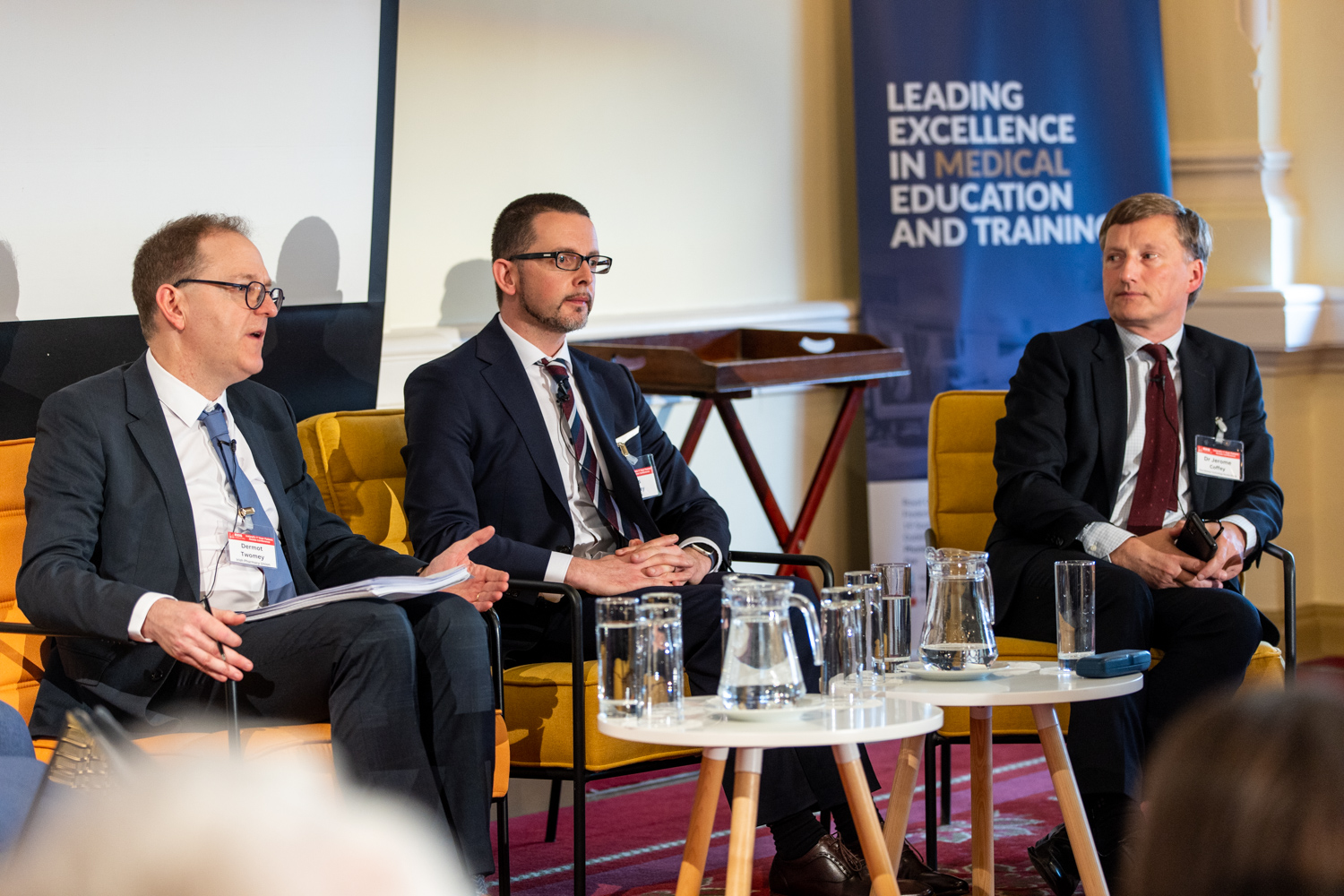
Q&A Session – Dermot Twomey, Des Lucey and Dr Jerome Coffey
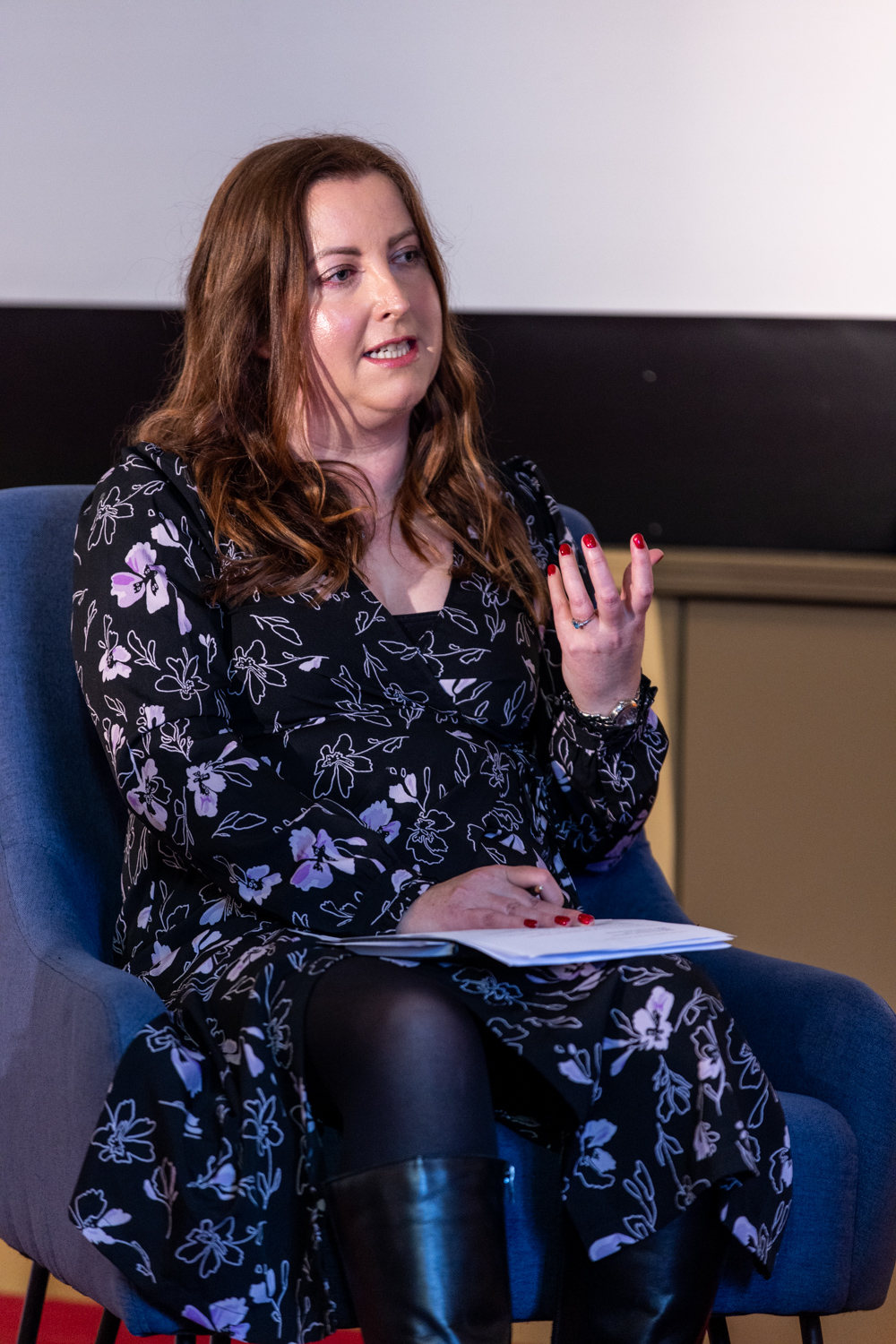
Ms McGrath finished by highlighting that data collected currently by PCRS is for reimbursement purposes only, and this does not lend itself well to data collection models required by drug companies to demonstrate cost-effectiveness.
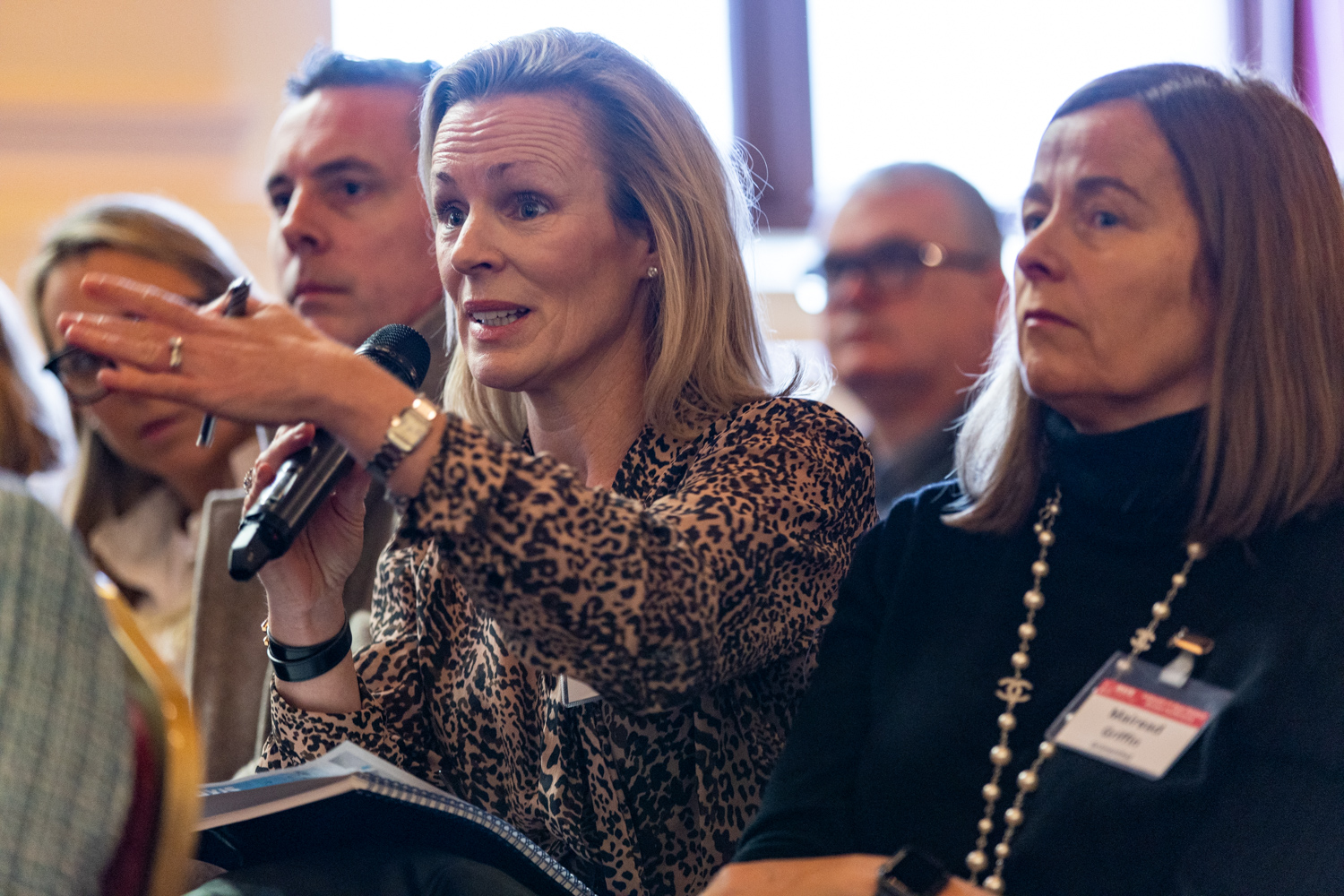
Panel Discussion – The Patient’s Voice in Access
The final session before lunch was a Panel discussion entitled ‘The Patient’s Voice’, with a variety of patient advocates, including Ms Rachel Morrogh, Director of Advocacy and External Affairs at the Irish Cancer Society; Mr Philip Watt, CEO of Cystic Fibrosis Ireland; and David McMahon, Chairperson of the Irish Platform for Patient Organisations, Science and Industry (IPPOSI). During this session, it was clear the significant role the patient voice has, especially in treating rare diseases (diseases that affect less than 1 in every 2,000 of the population – 80% genetic in origin), and the frustrations with the slow pace of orphan drug designation. These organisations also discussed the difficulty of collating data for submission to NCPE, especially due to the lack of disease registries in Ireland. They highlighted the role of Rare Diseases Ireland (www.rdi.ie), and the upcoming rare disease day on 28 February, as well as pointing out resources available on the HSE website from the National Rare Disease Office. They also recommended to the audience a new position paper developed in 2023 by Health Research Charities Ireland (HRCI) entitled Embedding Research in Healthcare. This paper has three key recommendations, which they are looking for support and prioritisation for, by politicians and policy makers:
The afternoon session commenced with an enlightening presentation by Dr Jerome Coffey, who is currently chair of the Rare Diseases Technology Review Committee (RDTRC) within the HSE, which meets two or three times a year to review new drug therapies for rare diseases. Dr Coffey’s presentation outlined the importance of the patients’ voice and advocacy for rare diseases. He also pointed out the inequalities in access across the island of Ireland, depending on if you are north or south of the border. Dr Coffey explained the National Rare Disease Plan for Ireland and the HSE Model of Care for Rare Diseases. Dr Coffey presented the reality for funding of new medicines in Ireland by citing the National Treasury Management Agency figures for the national debt of approximately €44,000 per citizen in Ireland (one of the highest in the world per capita). He also referenced a Sunday Business Post article from November 2022 with the title Our hidden waiting list of delays in access to medicines is costing lives.
The next speaker was Mr Des Lucey, Head of Market Access, GSK. In his presentation he outlined his career, which included community pharmacy, and he highlighted the excellent work happening in pharmacies across the country on a daily basis. Mr Lucey outlined the need for stakeholders to be ambitious for patients, and that the €900 million in savings made by the state under IPHA agreements was a pragmatic partnership. He informed the audience that GSK had recently appointed two health economists to improve the quality of their reimbursement and HTA dossiers.

Panel 3 – Accessing Novel Medicines: Prof. Áine Carroll, Prof. Michael Barry, Brenda Dooley and Dr Dearbhaile Collins.
The IPU President, Mr Dermot Twomey, was the last speaker in this session with a presentation entitled ‘Role of Community Pharmacist – Journey to Access’. In this session, Mr Twomey outlined the vision of the IPU; “To be the authoritative voice of community pharmacy and the driving force in the evolution of accessible, equitable and patient-focussed primary healthcare.” His presentation discussed the accessibility of community pharmacy, the role of the community pharmacist in care of patients on High Tech Medication (HTM) and the evolution of the High-Tech Scheme (HTS). Mr Twomey highlighted that, on average, each pharmacy has 55 patients on the HTS, with approximately 40 HTM dispensed monthly. He outlined the room for improvement in access for patients and focussed on enhancements required within the HT hub to manage this access better. Mr Twomey’s presentation finished on the need to utilise the skills of pharmacists for enhanced patient care services, and on the IPU advocacy position for a wider scope of practice for community pharmacists, the need for a pharmaceutical strategy for the citizens of Ireland and for this to be led by a Chief Pharmaceutical Officer.
The event finished with a panel discussion with panellists, including Professor Michael Barry, National Clinical Lead, of the Medicines Management Programme (MMP); Professor Áine Carroll, Chair of the HSE Drugs Group; Dr Dearbhaile Collins; and Ms Brenda Dooley, Chief Executive, AXIS Consulting.
Dr Áine Carroll, outlined the role of the HSE Drug Group, which is to make recommendations on the reimbursement of medicines to the HSE leadership team, and she outlined that this group was a small cog in a complicated machine. Dr Carroll indicated that the better the data presented to the drug group, the faster and smoother the process of a reimbursement decision. Dr Carroll discussed her frustrations with the slow progress of the electronic healthcare record, and the lack of disease registries in Ireland, all of which she outlined is not conducive to gathering the data required to make evidence-based decisions. Professor Michael Barry explained that the MMP was set up in 2013, and the remit of this body is that of safe, cost-effective and quality prescribing. Professor Barry explained that the MMP has 25 managed access programmes at present and that the drugs budget for the country is expected to rise significantly from the current €3 billion per annum, to €4 billion per annum by 2027/28. Professor Barry also outlined the numerous positive reimbursement decisions made that have benefitted Irish patients and observed that the media does not focus on these good news stories.
Brenda Dooley outlined approaches being taken in other jurisdictions noting in particular the role of the Patient Access Scheme Assessment Group (PASAG) group in Scotland who agree a confidential price for the new medicine before the HTA is submitted by the applicant company to the Scottish Medicine Consortium (SMC). This allows the SMC to determine accurately the Incremental Cost-Effectiveness Ratio (ICER) that are attainable when the confidential price has been secured upfront. Ms Dooley made the point that perhaps this approach should be seriously considered in Ireland as an alternative to our current approach where discussions on a confidential price for a new medicine only occurs with the HSE at the very end of the process.
Dr Collins highlighted her priorities as a clinician looking to get the best possible treatments to patients as early as possible and looking to avoid a situation where neighbouring countries have faster access than what’s possible in Ireland. She welcomed any developments that would allow her and fellow clinicians track where medicines are in the evaluation process .
The key take-home message from this session was the need to work together and collaborate and move away from working in silos.
It is clear that the drug budget will become more and more constrained over time, with each molecule presenting for reimbursement being a significant decision for the HSE, which has a finite budget and resources. We can also expect to see more managed access programmes from the Medicines Management Programme as they will need to deal with the reality of these budget constraints; that the HSE and drug companies are seeking ways to demonstrate and collect data to be able to assess patient outcomes from these therapies, and eHealth initiatives are seen as an enabler for this activity; and that the lack of disease registries is a barrier for healthcare in Ireland. Greater transparency is needed on the timelines and route to reimbursement decisions by the CPU. What is clear is that community pharmacists are at the end of a complicated infrastructure/ journey that centres around appropriate access for Irish citizens to medicines. There should be a key role for community pharmacists in ensuring that the health of Irish citizens is enhanced by access to these new and novel therapies.
References available on request
Clare Fitzell

Head of Professional Services, IPU
Highlighted Articles